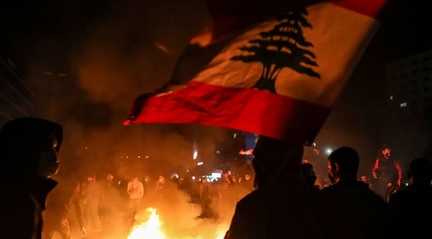
13 Jan 2022; MEMO: People in Lebanon took to the streets, on Thursday, in a number of cities in what protesters called "day of rage" against the deteriorating living conditions, the free fall of the Lebanese currency and a sharp rise in fuel prices, Anadolu News Agency reports.
The rallies came following a call by Bassam Tlais, the head of Land Transport Union, urging authorities to subsidise fuel prices and provide compensation to help them cope with mounting expenses.
Let us "take to the streets and announce a day of mass anger," Tlais had said, calling on people "not to believe the government's promises."
The protesters blocked all major roads and highways in the capital, Beirut, and its suburbs. Roads were also blocked in Tripoli, Sidon, and Bekaa.
While universities and schools were closed, many were not able to reach work because of road blockades.
General Labour Union chairman, Bechara Al-Asmar, praised the rallies as a success, saying: "This is a call for officials to fulfil their roles and duties towards the people."
The Human Rights Watch in its World Report 2022 said "corrupt and incompetent" Lebanese authorities have deliberately plunged the country into one of the worst economic crises in modern times, demonstrating a disregard for the rights of the population.
Almost 80 per cent of Lebanon's population now lives under the poverty line, with 36 per cent in extreme poverty.
The Lebanese pound has lost 90 per cent of its value since October 2019, eroding people's ability to access basic goods, including food, water, health care and education, while fuel shortages have caused widespread electricity blackouts.
Negotiations are underway between Lebanese authorities and the IMF for a bailout program.




